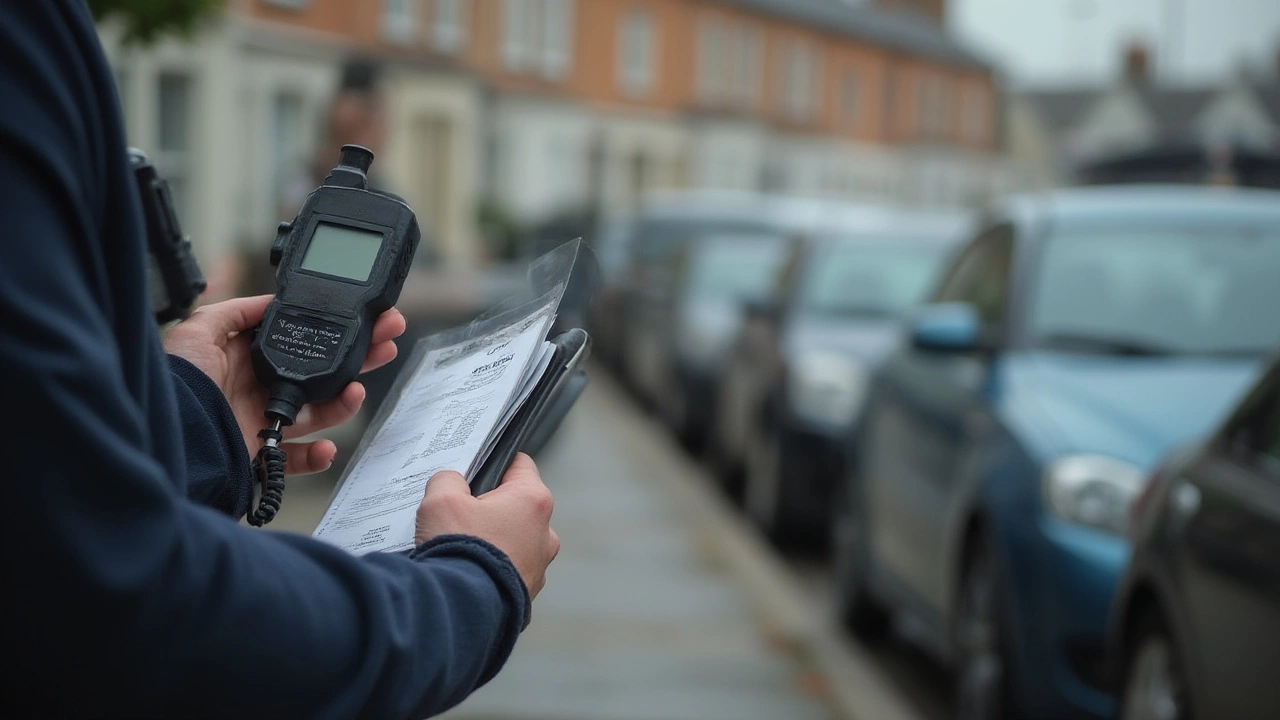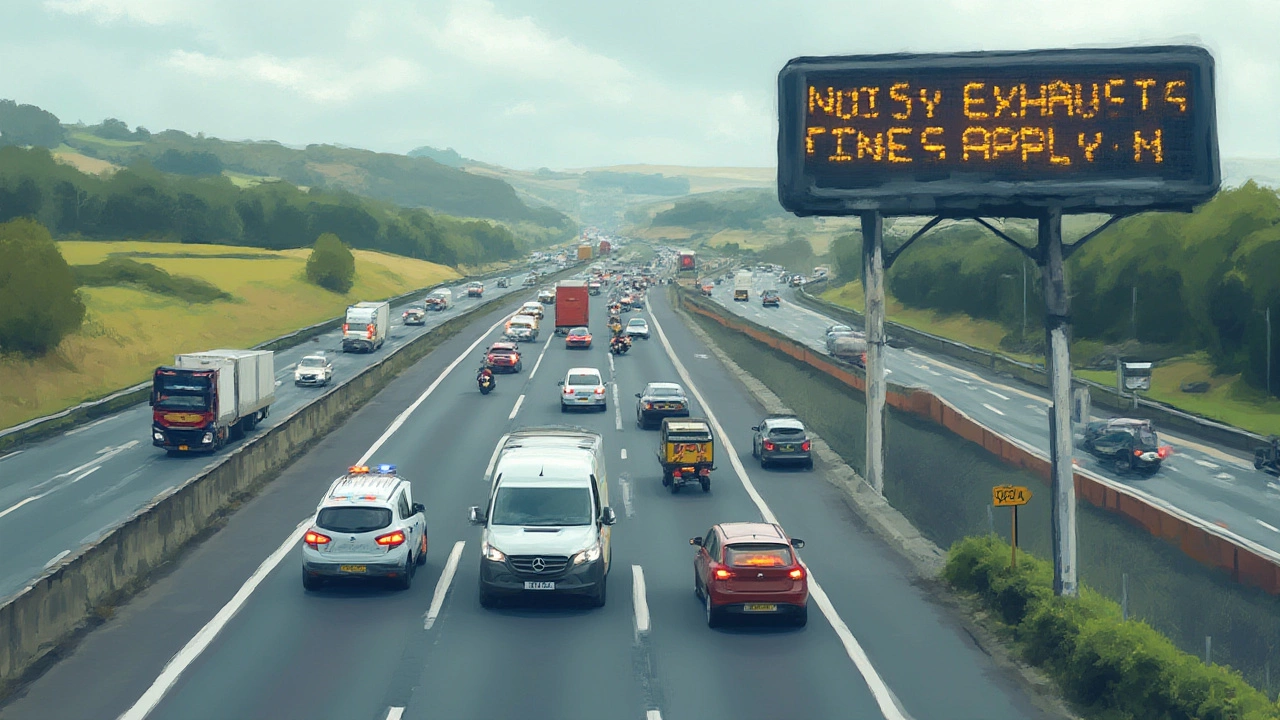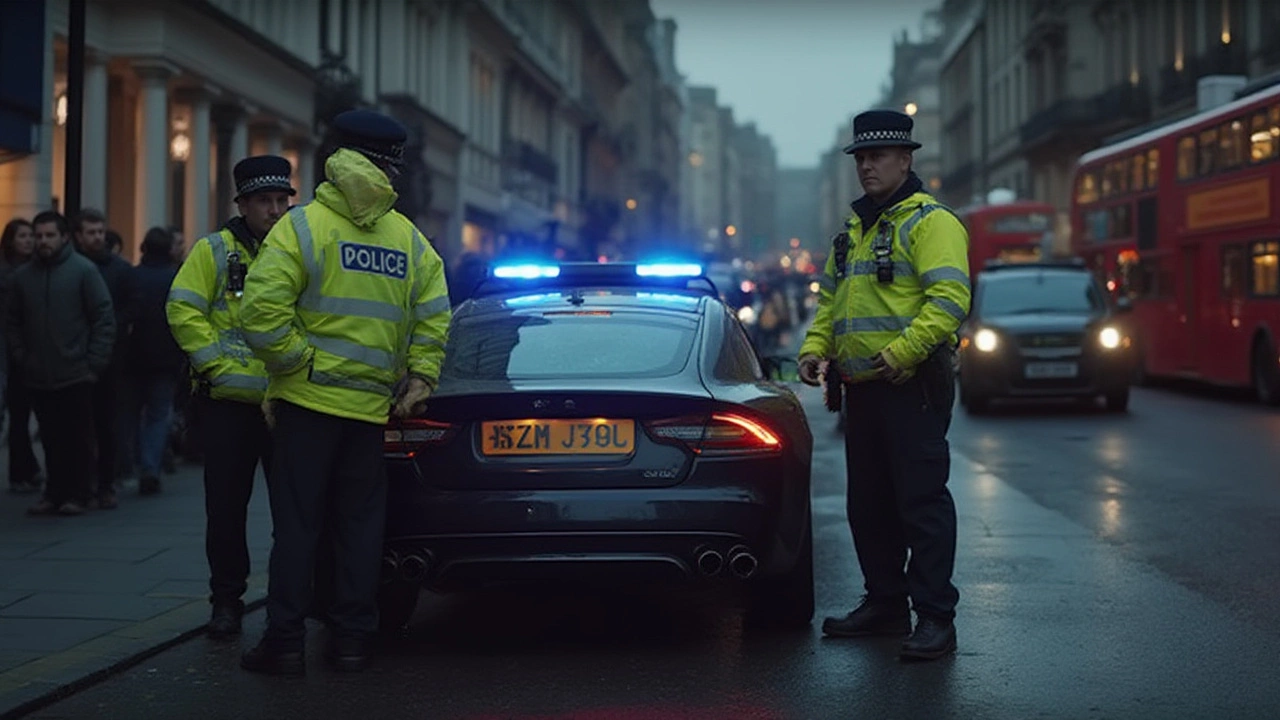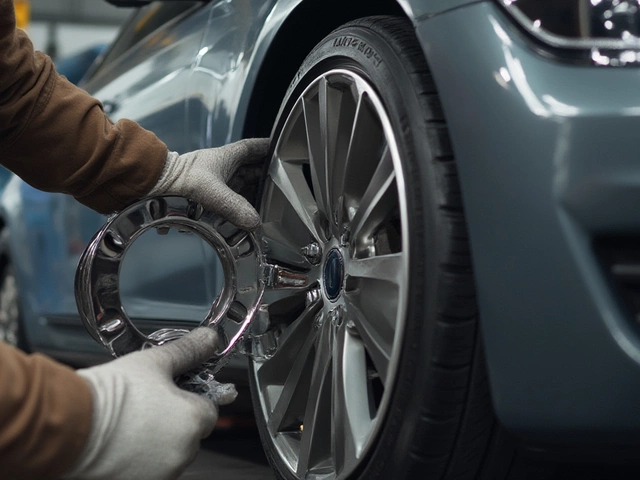Ever wondered if cops can actually pull you over just because your exhaust is making a racket? You rev your engine, enjoying that throaty growl, only to spot flashing lights in your mirror. Is your custom exhaust the problem? Car lovers and daily drivers run into this question all the time, especially with the rising popularity of aftermarket exhaust mods. The answer isn’t as simple as yes or no. It depends on exactly where you are, what you’ve done to your vehicle, and even how a particular officer is feeling that day. Still, the risk is very real. Cities all across the US and many other countries have cracked down on car noise recently, putting loud exhaust enthusiasts right in their crosshairs.
How Loud Is Too Loud? Understanding Noise Laws
Laws on exhaust noise are all over the map. Some places clearly spell out a decibel limit; others leave it up to an officer’s judgment. In California, for example, the noise limit for vehicles built after 1970 is 95 decibels, which is pretty loud — about as noisy as a leaf blower or a passing subway train. New York City’s Department of Environmental Protection set the bar even lower: cars can’t legally exceed 82 decibels when measured at 15 feet. A handful of states—like Texas—don’t have a hard decibel limit, but they do prohibit “excessive or unusual noise.” It’s a gray area, which means if a cop thinks your car sounds obnoxiously loud, they might have grounds to pull you over.
The tricky part? Most police officers don’t carry decibel meters, so enforcement is kind of subjective. You could get a ticket just because your ride stands out with a rumble or burble that’s hard to miss. Officers may also rely on their own hearing or the reactions of other drivers and pedestrians. In some cities, though, the approach is high-tech: places like Edmonton and New York have installed automatic roadside microphones to detect cars exceeding legal noise levels, sending you a ticket in the mail—no police stop required.
It’s worth mentioning that even stock vehicles—like certain Dodge Chargers or Mustangs—can sometimes approach these legal limits right from the factory. Of course, if you’ve swapped out your muffler for a straight pipe or added an exhaust cutout, you’re likely pushing way past what's legal. State and city codes make it pretty clear: tampering with emission or noise controls (like removing resonators or catalytic converters) is illegal in just about every state, regardless of your personal taste in sound. The best move? Look up your local laws. Nearly every city website lists noise ordinances, and automaker forums often have guides specific to each region.
Can Police Really Spot a Loud Exhaust?
A lot of drivers think you’ll only get in trouble if your car absolutely screams as you drive by. Not true. Law enforcement can, and do, stop vehicles for exhaust noise even at moderate levels. For many officers, it’s obvious which cars are likely to be louder based on the visible setup of the exhaust. Polished chrome tips, wide exhaust pipes, or a noticeable lack of muffler are quick giveaways. Some police departments even run dedicated “noise patrols”—roaming popular car hangouts on weekends specifically looking for sound violations.
It’s not always just about decibels, though. Cops often cite drivers if the exhaust system appears to be modified in a way that’s not street legal in that state. For example, removing a muffler in most US states is a one-way ticket to a hefty fine, even if your car isn’t technically over the decibel limit. So, you might get pulled over just for the look of your pipes—and then get cited for noise after a quick rev test.
Some cars trigger more suspicion than others. Sports cars, tuner cars, lifted trucks, and muscle cars are checked far more often than sedans or compact SUVs. That’s not fair, but it’s reality. There have been cases where drivers argue the stop was for profiling, but courts usually side with law enforcement if the officer reasonably believed a noise law was broken. National statistics are tough to pin down, but in Los Angeles alone, around 4,000 exhaust noise tickets are written each year, with a sharp spike since 2020 as noise complaints surged. And it’s not just a big city thing—suburbs and small towns often report an uptick in stops during car show season.

Types of Tickets, Fines, and Legal Risks
If an officer thinks your exhaust is too loud, they have a few ways to ticket you. The most common is a fix-it ticket, which means you have to restore your exhaust to legal standards, then show proof at the police station. This is usually the best-case scenario, since the fine itself is often small—maybe $25 to $50—but if you don’t fix the problem in time, that turns into a much steeper penalty, and sometimes a nonrenewable registration sticker. On the other hand, some places skip the warning and go straight to an equipment violation, which can run anywhere from $100 up to $1,000 for repeat offenders. In California, second violations within a year can cost $200 or more, and a third will net you $1,000 plus court fees.
Then there’s the possibility of an emissions violation, especially if your exhaust mod means you no longer pass local smog checks. States like California and New Jersey do random roadside emissions checks, and if you fail, you’re looking at a mandatory repair order and a fine. For trucks and motorcycles, the enforcement can be even stricter, since many states have additional regulations about sound limits for commercial and recreational vehicles.
If you want to see how bad it could get, look at the following table of fines for some US cities as of 2024:
| City | First Offense Fine | Repeat Offense Fine | Decibel Limit |
|---|---|---|---|
| Los Angeles, CA | $197 | $1,000 | 95 dB |
| New York, NY | $220 | $525 | 82 dB |
| Detroit, MI | $100 | $500 | 90 dB |
| Miami, FL | $93.50 | $250 | No set limit |
| Dallas, TX | $200 | $500 | No set limit |
One key thing to remember: noise complaints from neighbors or other drivers can mean officers are on high alert. Some towns have started posting “noise hotlines,” making it easier for annoyed residents to call in cars with excessive exhaust noise. If your car becomes notorious in your area, don’t be surprised to find a ticket on your windshield—or worse, get stopped regularly for inspections. That’s why it pays to keep any changes street legal and know your area’s specific rules.
Tuning Your Ride: What’s Legal, What’s Not?
The line between “modded” and “illegal” can get blurry. Swapping out factory mufflers for performance parts is technically legal in a lot of states, as long as you meet local sound and emissions requirements. Companies like Borla, MagnaFlow, and Flowmaster sell exhaust kits that are labeled “50-state legal,” meaning you won’t run afoul of the law just for installing them. Still, those kits can make your car sound bolder without pushing past the legal limit, at least if you don’t mess with anything else.
Things turn risky if you remove essential components like catalytic converters, add cutouts, or run straight pipes. Not only do these mods almost always push you over the decibel cap, but they also let off more pollutants, which means double the risk: you could get hit with both noise and emissions violations. If you’re caught without a cat, fines stack up fast, and insurance may not cover related repairs if you’re in an accident. Plus, most newer cars are programmed so even small exhaust tweaks can trigger a check-engine light or emissions failure.
There’s a market out there for so-called “stealth” mods—think manual cutouts that let you close your pipes for a stock sound, or sound suppression baffles that slip in and out. They might buy you time, but law enforcement is catching on fast. Some towns have even banned removable exhaust baffles, recognizing how easy it is to switch your car from compliant to obnoxious in minutes. Before making any changes, inspect your state's vehicle code or talk to a trusted mechanic with experience in legal performance upgrades. When in doubt, stick to certified, reputable brands and ask for written proof your new pipes are legal for street use.

Tips for Avoiding Tickets and Annoying Stops
So, what can you do if you want a throaty ride without catching the eye of every cop in the state? Here’s how experienced gearheads manage to enjoy their cars without blowing up their wallets on fines:
- Know your local noise limit. It sounds basic, but laws change from town to town and even from one side of a city to another. If you travel, look up ordinances in each area before going wide open throttle.
- Keep your exhaust in top condition. Broken hangers, rust holes, or loose connections make everything way louder. Regularly crawl under your car (or have your shop check) for unexpected noise.
- Stick with reputable, street-legal brands. Aftermarket exhausts can be legal, but look for an “approved for street use” or “CARB-compliant” tag. Keep the paperwork in your glove box for proof.
- Swap for removable baffles or use active valve exhausts only if your area allows it, and never drive with these open where it’s illegal.
- If you get stopped, stay cool. Show respect, explain your mods, and have documentation ready. Most officers will at least listen if you’re polite and know your rights and local laws.
- Be smart about where—and when—you get loud. Late-night rips through quiet neighborhoods are almost guaranteed to trigger a complaint, whether you’re legal or not.
- Use a smartphone decibel app to check your own setup, but realize these aren’t perfect substitutes for calibrated equipment. Still, knowing you’re at 93 dB instead of 110 can help your case.
- If you receive a ticket and believe you’re within the law, you have the right to fight it. Bring records, photos, and any third-party decibel tests you can find. Having receipts from an approved shop helps a ton.
Loud exhausts aren’t going away anytime soon, but neither are sound ordinances. If you want your car to stand out for the right reasons, make it as bold as you like—just keep one ear on what’s legal and what’s not. A bit of homework now can save you a ton of hassle—and cash—on the road ahead.




